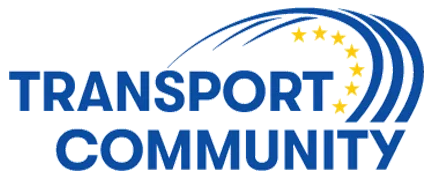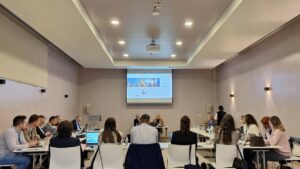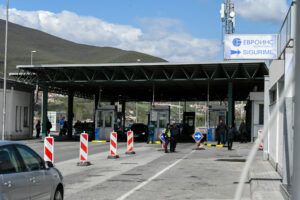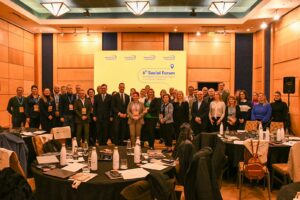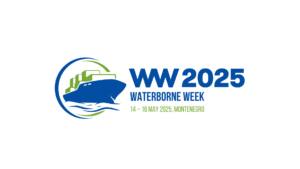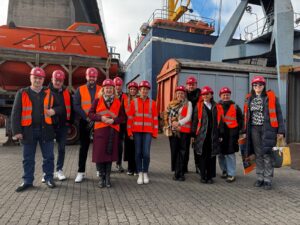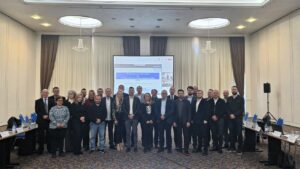Waterborne transport plays a crucial role in connecting nations, facilitating trade, and promoting economic growth across regions. This form of transport encompasses various modes such as shipping, barges, ferries, and other vessels that navigate rivers, canals, and oceans. By utilizing the vast network of waterways, the Transport Community Permanent Secretariat aims to create a sustainable and efficient waterborne transport system that not only benefits the regional partners and observer participants but also promotes connectivity with European Union area.
There are many advantages of waterborne transport, the ability to carry large volumes of goods, its cost-effectiveness, its environmental efficiency compared to other modes of transportation, the possibility of linking the landlocked regions to coastal areas, opening new trade routes, and promoting economic integration etc.
Waterborne transport holds a vital position within the Transport Community Permanent Secretariat, serving as a cornerstone for economic development, regional integration, and sustainable connectivity. By leveraging the immense potential of waterways, the Transport Community Permanent Secretariat aims to foster cooperation, harmonize standards, and optimize the efficiency of waterborne transport operations. Through collective efforts and shared expertise, regional partners and observer participants will unlock the full benefits of this mode of transportation, promoting economic growth, social welfare, and environmental sustainability within the European Union, Western Balkan and beyond.
Through the development and harmonization of regulations, standards, and policies, the Transport Community Permanent Secretariat seeks to optimize the potential of waterborne transport in the region while addressing the challenges and concerns associated with its operation focusing on improving infrastructure, enhancing safety and security measures, promoting sustainable practices, and fostering innovation within the sector.
Based on Article 26 of the Transport Community Treaty, the Regional Steering Committee (RSC) approved the establishment of the Waterborne Transport and Multimodality Technical Committee (WTM TC), in the form of an ad hoc working group. The WTM TC with the support of the Permanent Secretariat of the Transport Community elaborated a coherent set of concrete actions, in the form of an action plan, to be implemented by the Western Balkan Regional Partners in a coordinated and timely manner. The aim of the Action Plan is the streamlining of the priority projects in the region (on the extended TEN-T network), improving multimodal/maritime/inland waterway infrastructure and introducing digitalization (RIS, VTMIS, PCS, e-maritime and other intelligent transport systems), introduction of green and innovative elements, supply chain problems and operational efficiency as well coordination between modes.
In July 2021 the Ministerial Council of Transport Community endorsed the Action Plan for Waterborne Transport and Multimodality. This Action Plan provides a list of short and medium-term activities aiming at addressing critical issues in waterborne transport (maritime, inland waterways, and ports) as well as multimodality aspects and promote their efficient use by targeting appropriate measures.
